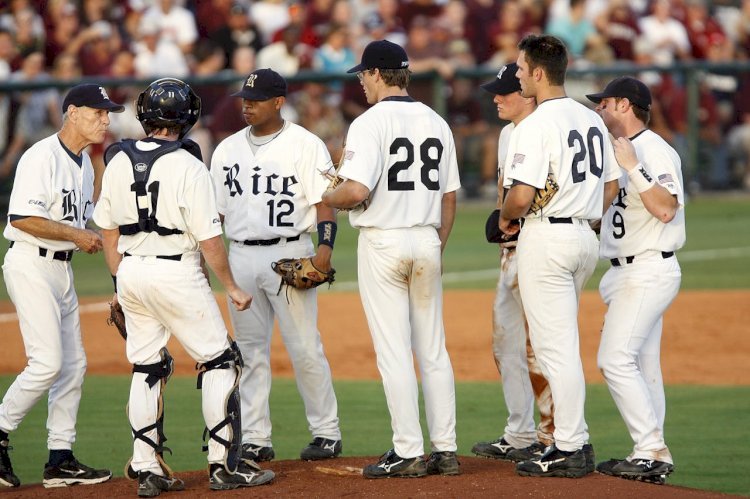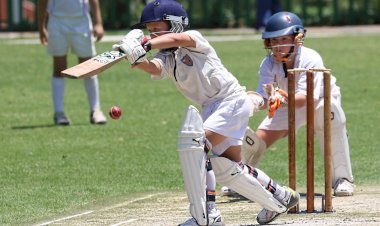How to Start a Baseball Coach Career: Skills, Pathways & Opportunities
Start your baseball coach career with our guide. Learn skills, pathways, salaries & opportunities to succeed in coaching at all levels.

Baseball has long been celebrated as America’s pastime, but it has also become a thriving professional pathway for those who love the game beyond just playing it. A baseball coach plays a crucial role in shaping athletes, building winning teams, and keeping the spirit of the game alive at all levels. For many, pursuing a baseball coach career is not just a job—it’s a calling that combines passion, leadership, and strategy.
In 2025, opportunities for baseball coaches are expanding, not just in the U.S. but globally. From Little League programs to Major League Baseball (MLB) teams, skilled coaches are in demand for their ability to mentor, strategize, and inspire. If you’re passionate about baseball and want to turn that passion into a career, this guide will walk you through the skills, pathways, and opportunities in coaching.
What Does a Baseball Coach Do?
A baseball coach is much more than a strategist. They are mentors, teachers, and motivators who shape players both on and off the field. Their responsibilities can vary depending on the level they coach but typically include:
-
Teaching fundamentals like pitching, hitting, fielding, and base running.
-
Developing practice drills to improve performance.
-
Studying opponents and crafting game strategies.
-
Motivating players and building team morale.
-
Ensuring player health and conditioning.
-
Managing communication with parents, athletic directors, or team owners.
At professional levels, coaches often specialize—such as pitching coaches, hitting coaches, or strength and conditioning experts. In contrast, youth and high school coaches often wear multiple hats, balancing technical training with player development and mentorship.
Essential Skills for a Baseball Coach
To thrive in this career, aspiring coaches must blend technical expertise with leadership qualities.
1. Technical Skills
-
Deep understanding of baseball rules, strategies, and game mechanics.
-
Ability to teach fundamentals clearly and effectively.
-
Knowledge of drills and training techniques tailored to different age groups.
2. Leadership & Communication Skills
-
Clear communication with players, parents, and staff.
-
Inspiring confidence and discipline in athletes.
-
Conflict resolution and team management.
3. Analytical & Technological Skills
-
Using statistics and data analytics to track player performance.
-
Embracing modern tools like video analysis, radar guns, and fitness trackers.
4. Soft Skills
-
Patience with young athletes and beginners.
-
Adaptability in changing game situations.
-
Passion and resilience in a demanding profession.
Educational Background & Certifications
While some coaches transition directly from playing careers, education and certifications can greatly enhance credibility.
-
Degrees: A background in sports science, kinesiology, or physical education is beneficial but not always required.
-
Certifications:
-
USA Baseball Coaches Certification Program (popular for youth coaching).
-
NFHS (National Federation of State High School Associations) Coaching Courses.
-
ASEP (American Sport Education Program) training.
-
-
Health & Safety Training: CPR, concussion management, and first aid certification are often mandatory.
At higher levels like college and professional leagues, a strong résumé of playing or assistant coaching experience may outweigh formal degrees.
Pathways to Becoming a Baseball Coach
There isn’t a one-size-fits-all path to becoming a coach, but here are the most common routes:
1. Former Player Transition
Many coaches are former players who use their on-field experience to guide others. Their firsthand knowledge of gameplay is invaluable, and they often begin by volunteering or coaching part-time before securing full-time roles.
2. Education & Sports Management Track
Those without playing experience often study sports science, kinesiology, or sports management. Universities and colleges may offer assistant coaching roles as a stepping stone.
3. Volunteering & Internships
Starting at the community level is a common entry point. Volunteering in Little League or high school baseball builds practical experience and connections.
4. Climbing the Ladder: Assistant to Head Coach
Most head coaches begin as assistant coaches, learning the ropes, handling specific tasks (like training pitchers), and building credibility before stepping into leadership roles.
Levels of Baseball Coaching Careers
The level at which you coach significantly affects your responsibilities, pay, and visibility.
Youth & Little League Coaching
-
Focus: Teaching fundamentals and love of the game.
-
Environment: Community-based, often volunteer or part-time.
-
Reward: Personal fulfillment and foundational skill-building.
High School Baseball Coaching
-
Focus: Developing competitive players, discipline, and teamwork.
-
Requirements: Teaching licenses may be necessary.
-
Environment: Balancing academics with sports development.
College Baseball Coaching
-
Focus: Recruitment, NCAA compliance, player development.
-
Responsibilities: Traveling for scouting and games, advanced strategies.
-
Environment: High visibility with potential to move into pro coaching.
Professional Baseball Coaching (MLB & Minor Leagues)
-
Focus: Specializations (hitting, pitching, fielding).
-
Requirements: Significant experience and networking.
-
Reward: Higher salaries, media exposure, and career prestige.
Salary & Career Outlook (2025)
Baseball coach salaries vary widely based on the level of play and location. Here’s a breakdown:
| Level | Average Salary (2025) | Notes |
|---|---|---|
| Youth / Little League | $0 – $5,000/year | Often volunteer-based |
| High School Coach | $25,000 – $55,000/year | May include teaching role |
| College Coach (NCAA) | $60,000 – $250,000/year | Top programs pay significantly more |
| Minor League Coach | $40,000 – $75,000/year | Salaries improving after reforms |
| MLB Head Coach / Manager | $1 million – $5 million+ | High-profile coaches earn more |
Job Outlook (2025 and beyond):
-
Youth sports participation is growing, increasing demand for trained coaches.
-
College and professional coaching remains highly competitive, but opportunities expand with new leagues and international baseball programs.
Opportunities & Specializations
Coaching isn’t limited to managing entire teams—specialized roles offer unique career opportunities:
-
Pitching Coach – Focuses on mechanics, stamina, and injury prevention.
-
Hitting Coach – Teaches batting techniques and offensive strategies.
-
Strength & Conditioning Coach – Develops fitness programs for players.
-
Private Coach / Baseball Academy Owner – Entrepreneurial path offering training outside formal leagues.
Challenges of a Baseball Coach Career
While rewarding, coaching also comes with challenges:
-
Time Demands: Long hours for practice, travel, and games.
-
Pressure & Performance: High expectations from fans, schools, or owners.
-
Job Security: Results-driven environment, especially in college and pro levels.
-
Balancing Priorities: Focusing on both player development and winning games.
Steps to Build a Successful Coaching Career
-
Start Small – Volunteer with local leagues to gain hands-on experience.
-
Get Certified – Enroll in coaching programs to boost credibility.
-
Network – Connect with athletic directors, scouts, and other coaches.
-
Stay Updated – Learn modern baseball analytics and technology tools.
-
Develop a Coaching Philosophy – Build a personal brand and approach to leadership.
Inspiring Stories of Successful Baseball Coaches
-
Tony La Russa – A former law student who became a Hall of Fame MLB manager.
-
Joe Maddon – Started as a minor league scout and worked up to managing World Series champions.
-
Mike Bianco – Built a strong reputation in college baseball before reaching national prominence.
These stories show that with persistence, passion, and adaptability, coaching careers can evolve from modest beginnings into national recognition.
Tips for Aspiring Baseball Coaches
-
Be patient—progress takes years, not months.
-
Focus on mentorship, not just winning.
-
Keep learning new training methods and technology.
-
Build strong relationships with players, parents, and staff.
-
Stay resilient; setbacks are part of the journey.
FAQs
1. Do you need a degree to become a baseball coach?
Not always, but degrees in sports management, kinesiology, or physical education help, especially for college and professional roles.
2. How long does it take to become a baseball coach?
It varies. Some start coaching youth leagues immediately, while advancing to college or professional levels can take years of experience.
3. Can former players become coaches without certifications?
Yes, many do. However, certifications increase credibility and may be mandatory at schools and colleges.
4. What is the highest-paying level for baseball coaches?
Major League Baseball managers earn millions annually, making it the most lucrative level.
5. Is coaching a full-time career?
At youth levels, it’s often part-time. At college and pro levels, it becomes a demanding full-time career.
Conclusion
Starting a baseball coach career is about more than loving the game—it’s about dedication, education, and continuous growth. Whether you begin in Little League, high school, or college, the path to professional coaching requires patience, resilience, and passion.
In 2025 and beyond, baseball coaching offers diverse opportunities across youth sports, collegiate programs, and professional leagues. With the right mix of skills, certifications, and experience, you can transform your love of baseball into a lifelong career that inspires athletes and keeps the game thriving.
Read Also: Sports Harmonicode: A Game-Changer for Modern Athletes

 alissaperry
alissaperry 






















